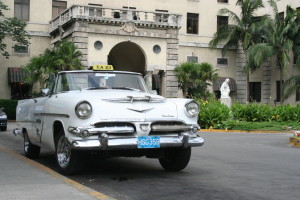 At least 40% of what you we do each day follows a script, according to Dr. Wendy Wood and her fellow researchers. These scripted behaviors are the habits we’ve adopted over the years.
At least 40% of what you we do each day follows a script, according to Dr. Wendy Wood and her fellow researchers. These scripted behaviors are the habits we’ve adopted over the years.
Many of these habits help us start our day each work morning. By unconsciously going through motions rather than thinking about our steps, we can more quickly get ready for work.
Habits—these embedded behaviors in our unconsciousness—help us at the office too. For example, we can turn on our computer, open up our email, pour a cup of coffee and do many other things automatically without taxing our focus, our memory and our decision-making skills.
As a result, we save our thinking power and other cognitive resources that we are apply to more challenging activities and new problems that arise.
But what happens if you and your organization have a “culture of genius” mindset and become so comfortable at what you do that you get in a groove, stick with your routine and ignore the changes going on outside your world?
If you’re in an industry that’s being rocked by technology or other changes, your commitment to the status quo could have some serious, adverse consequences.
For example, consider Uber, the almost five-year old app-based transportation company that’s now valued at more than $40 billion and operates in 53 countries and more than 200 cities.
Many conventional taxi companies, taxi drivers and government bodies continue to protest Uber’s operations on the basis that Uber is engaging in unfair business practices, compromising passenger safety and violating local laws.
As of January 15, 2015, the Public Service Commission of South Carolina issued Uber an order to cease and desist operations within the state of South Carolina until the company complies with all of the state’s statutory and regulatory requirements.
In the city of Charleston, SC where I now live, the conventional cab companies are celebrating this turn of events. Not only is the law on their side, but their current business model and operations, including all their outdated habits that bother customers, seem secure.
Especially with Uber shut down for now, there’s no motivation to ask: “Why is Uber so popular with customers?”
Charleston cabs have created five customer-unfriendly habits compared with Uber’s:
- The process for requesting cabs is cumbersome. Rather than use my smartphone, I have to order a cab by phone for a home pickup or when at the airport, visit the cab stand. Phoning isn’t sure proof. For example, I left a phone message more than two hours ago about a cab I need tomorrow, and I’m still waiting for a call back to confirm.
- Cab drivers are frequently late, even with scheduled pickups. The drivers blame the traffic rather than consider changing their habit of allowing more time to get to their destination. I’ve experienced more late pickups in 10 months in Charleston than in 13 years in the much more congested San Francisco Bay Area.
- Cab drivers complain about taking credit cards. Generally about a third of the cab ride involves listening to the driver whine about the problems with customers paying by credit cards. Too much of the fare goes to pay for the credit card fee. When I ask about introducing a surcharge for those who want to pay by credit cards or offering a discount for those who pay with cash, I get silence.
- The cabs are not equipped with GPS. Yet many drivers aren’t familiar with the nuances of the traffic rules and conditions in downtown Charleston. I often have to direct the drivers.
- Cabs to and from the airport are almost always gas-guzzling vans with bad shocks. Even with gas selling for less than $2 a gallon in Charleston, it seems wasteful to use a van to transport one customer. I’d much rather ride in a one of the old pre-revolution American cars that serve as taxis in Havana.
As for Havana, the steps that Cuba and the United States are taking to normalize relations could disrupt the traditional taxi business in Charleston as much as or even more than Uber.
When Americans can travel as easily to Havana as they do Charleston, it will be interesting to see if the younger, historical city in the US will be able to maintain its popularity as a tourist destination.
Or, will individuals prefer to travel to the exotic land just 90 miles from Key West, FL?
I for one would love to ride in the Havana cabs again—although I do very much appreciate Charleston’s modern plumbing and commitment to maintain and improve all other aspects of its infrastructure.
These days, it’s important to refresh your habits to fit current circumstances. In other words, disrupt yourself rather than delay the inevitable disruption from others. Rather than always follow a script, improvise!
Which of your work habits are still suitable as a script or would benefit from improv?

0 Comments